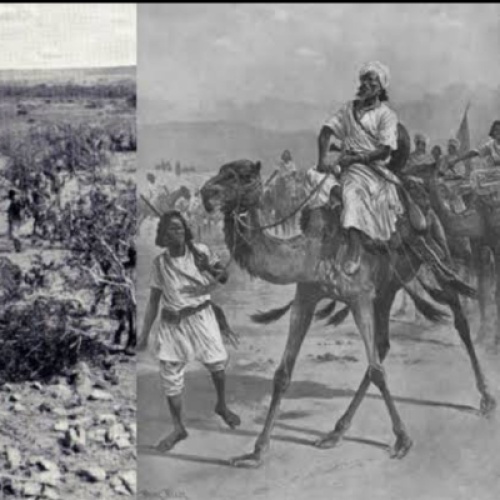The year was 1940, and the vast, unforgiving landscapes of the Somali region in Ethiopia were a stark contrast to the bustling cities and towns elsewhere in the world. Among these arid expanses, tribal raids were a harsh reality, a fight for survival in a land where resources were scarce and the environment was merciless.
In this rugged terrain, a young man of just 21, full of vigor and determination, joined the Somali tribal raiders. This group of 200 men, strong and resolute, embarked on a mission to raid their non-Muslim neighbors: the Gabra, Rendille, and Samburu people. Their journey was arduous, stretching from southeastern Ethiopia deep into enemy territory, all the way to Marsabit County in northern Kenya.
They set out on their quest, their supplies carried on horses and camels, supplemented by their own backs. Traditional popcorn and sugar were their main sustenance - popcorn for its carbohydrates and sugar for its energy. Water, the precious liquid of life, was rationed carefully.
Days turned into weeks as they trekked across the harsh terrain. The relentless sun beat down on them, and their food supplies dwindled. As desperation set in, they made the unimaginable decision to eat their horses and camels. Now on foot, with no food and scarcely any water, they found themselves in the heart of the desolate Chalbi Desert.
The desert stretched out before them, an endless sea of sand and rock. Days passed without a single sighting of life, apart from their band of 200. Starvation loomed, and dehydration gnawed at their spirits. The angel of death seemed to hover above, ready to claim them one by one.
After the Fajr prayer at dawn, the commanders gathered to find a solution. Their decision was both desperate and heartbreaking: they would sacrifice one of their own to save the rest. The chosen one would be the tallest and biggest among them - the giant of the group.
As the news spread through the camp, the chosen man, our grandfather's comrade, stepped forward. His eyes filled with tears, but his voice was steady. "I heard you plan to feast on my flesh," he said, "and I want you to know that I am ready to be sacrificed to save my 199 brothers."
His bravery brought tears to the eyes of his comrades. They embraced him, crying together, a brotherhood bonded by hardship and a shared fate. In that moment of profound humanity, they decided not to eat him, clinging to the hope that they might yet find sustenance on the road ahead.
They walked for an entire day, weak but resolute. Then, from a distance, they caught a scent - faint but unmistakable. The smell of a dead animal. As they approached, they saw it: a dead buffalo, its belly distended.
In their dire state, it was a feast. They ate, their strength renewed, their spirits lifted. It was a gruesome salvation, but it was salvation nonetheless. With newfound energy, they continued their journey and soon came upon their intended targets. They raided and took a vast number of livestock - camels, cows, goats - and yes, even slaves. It was a harsh time, and their actions were driven by survival.
This story, though filled with the harsh realities of the past, also speaks to the incredible resilience and unity of those who lived it. The willingness to sacrifice, the hope that kept them going, and the ultimate triumph in the face of despair are timeless lessons that echo through generations.
And so, the tale of the Somali tribal raiders of 1940 remains a testament to the strength of the human spirit, even in the most challenging of circumstances.






